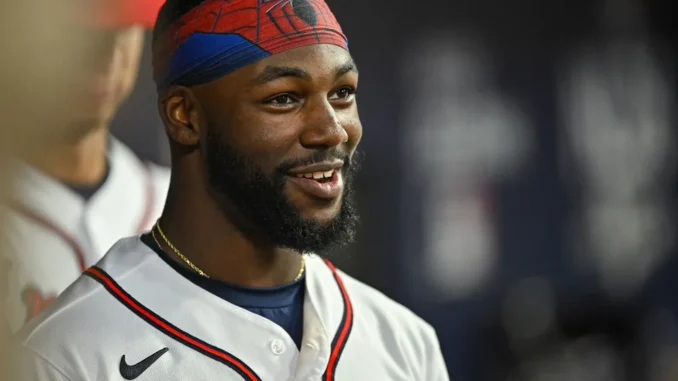
The Atlanta Braves face a challenging decision regarding their outfield strategy after Michael Harris II sustained an injury. As Harris has been a crucial component of the Braves’ lineup, his absence necessitates strategic adjustments to maintain the team’s performance and cohesion.
Michael Harris II has been a standout performer for the Braves, contributing significantly both offensively and defensively. His injury, therefore, creates a notable gap in the roster. The Braves will need to assess their current players and consider how best to fill this void. Options include promoting players from their minor league affiliates or adjusting the roles of existing team members to cover Harris’s responsibilities.
One potential approach could involve shifting existing outfielders to different positions to optimize their defensive capabilities while ensuring the lineup remains potent. For instance, players like Ronald Acuña Jr. might be moved to center field, a position Harris typically occupies, depending on their defensive skills and past experience. This would necessitate finding suitable replacements for the corner outfield spots, possibly pulling from the bench or minor league rosters.
The Braves might also look into temporarily bringing up a prospect from their farm system to fill the gap. Prospects who have shown promise in the minor leagues could be given an opportunity to step up to the major league level. This not only fills the immediate need but also provides valuable experience for younger players, potentially benefiting the team in the long term.
Alternatively, the Braves could explore the trade market to acquire a temporary replacement. While this option involves financial considerations and the potential loss of future prospects or current roster players, it ensures the team remains competitive during Harris’s absence.
The team’s management will undoubtedly evaluate Harris’s recovery timeline to decide the best course of action. If the injury is minor and Harris is expected to return quickly, temporary internal adjustments might suffice. However, if his recovery will take longer, more substantial changes, including trades or minor league promotions, could be necessary.
Ultimately, the Braves’ approach will be a balancing act between maintaining immediate competitive performance and preserving long-term team development. The team’s depth, flexibility, and strategic planning will be crucial in navigating this period without one of their star players. The Braves’ ability to adapt to Harris’s injury could significantly impact their performance in the coming games and their overall season success.
Leave a Reply